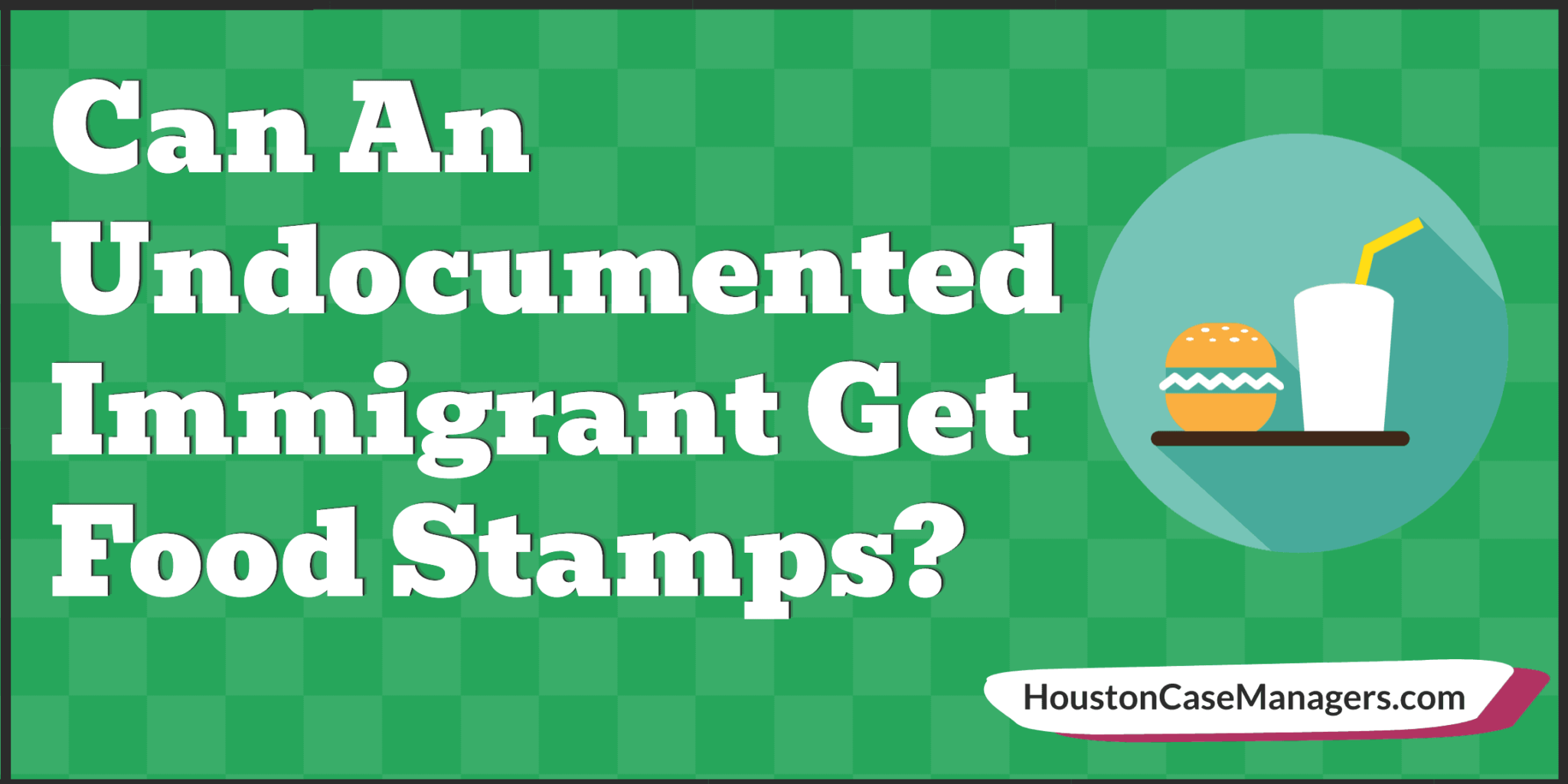Do undocumented immigrants get food stamps sets the stage for a complex and often overlooked aspect of American immigration policy. The question of food security for this population raises concerns about legal access, societal impact, and the very definition of fairness in a nation built on the promise of opportunity.
The answer, as with many facets of immigration, is not straightforward. While federal law bars undocumented immigrants from receiving SNAP benefits, alternative programs and community support networks attempt to bridge the gap.
This article delves into the intricate web of eligibility requirements, legal precedents, and the very real consequences of food insecurity for undocumented immigrants. We explore the arguments for and against providing SNAP benefits, the broader context of immigration and food security, and the ongoing debate surrounding this critical issue.
Legal Status and Food Stamp Access

The eligibility for SNAP benefits, often referred to as food stamps, is a complex issue that’s intertwined with immigration status. While undocumented immigrants are generally ineligible for SNAP, there are exceptions and nuances that require further exploration.
Legal Basis for Denying SNAP Benefits to Undocumented Immigrants
The legal basis for denying SNAP benefits to undocumented immigrants stems from the Personal Responsibility and Work Opportunity Reconciliation Act of 1996 (PRWORA). This legislation introduced the concept of “qualified alien” status, which defines who is eligible for various federal benefits, including SNAP.
The PRWORA states that undocumented immigrants are not considered “qualified aliens” and therefore are not eligible for SNAP benefits.
This legislation has been the cornerstone of restricting SNAP access for undocumented immigrants, though exceptions exist for certain categories of individuals.
The Impact on Undocumented Immigrants

Undocumented immigrants face significant challenges in accessing food assistance programs like SNAP (Supplemental Nutrition Assistance Program). Their exclusion from these programs can have profound impacts on their food security and overall well-being.
Challenges Faced by Undocumented Immigrants
Undocumented immigrants are ineligible for SNAP benefits due to their legal status. This exclusion can lead to severe consequences for their food security. Many undocumented immigrants are forced to rely on limited resources and support networks, leading to food insecurity.
Consequences of Food Insecurity
Food insecurity among undocumented immigrants can have severe consequences for their health, well-being, and overall quality of life. This includes:* Nutritional Deficiencies:Limited access to nutritious food can lead to malnutrition and health complications, especially for children and pregnant women.
Increased Risk of Chronic Diseases
Food insecurity is linked to an increased risk of chronic diseases like diabetes, heart disease, and obesity.
Mental Health Challenges
Food insecurity can contribute to stress, anxiety, and depression, impacting mental well-being.
Educational Disparities
Hunger and food insecurity can negatively impact children’s academic performance and school attendance.
Comparison with Other Vulnerable Groups
Undocumented immigrants often face a higher risk of food insecurity compared to other vulnerable groups, such as low-income families and individuals experiencing homelessness. This is because they lack access to government assistance programs and are often employed in low-wage jobs with limited benefits.
Personal Stories and Case Studies
“We had to choose between paying rent and buying food. It was a constant struggle to put food on the table, and my children were often hungry. I felt helpless and desperate.”
Maria, an undocumented immigrant from Mexico.
“I lost my job and couldn’t find another one. Without SNAP benefits, I was struggling to feed myself and my family. We had to rely on food banks and community kitchens to survive.”
Carlos, an undocumented immigrant from Guatemala.
These stories highlight the real-life struggles of undocumented immigrants facing food insecurity. Their experiences demonstrate the significant impact of exclusion from food assistance programs on their lives.
Alternative Food Assistance Programs: Do Undocumented Immigrants Get Food Stamps

Undocumented immigrants, while ineligible for SNAP (food stamps), can still access food assistance through various alternative programs. These programs offer essential support to individuals and families facing food insecurity, particularly those lacking legal documentation.
Availability and Eligibility of Alternative Food Assistance Programs
Many non-profit organizations and government programs offer food assistance to undocumented immigrants, but the eligibility criteria vary depending on the specific program and location. For instance, food banks and soup kitchens typically do not require proof of residency or legal status.
Most food banks and soup kitchens operate on a “first-come, first-served” basis, meaning they prioritize serving those in immediate need, regardless of legal status.
Food Banks, Soup Kitchens, and Community Gardens
Food banks play a crucial role in providing food assistance to low-income families and individuals, including undocumented immigrants. These organizations collect and distribute food donations from grocery stores, farms, and other sources.
Many food banks offer a variety of services, including food pantries, mobile food distribution sites, and nutrition education programs.
Soup kitchens provide hot meals to those experiencing homelessness or food insecurity. They often offer a welcoming environment where individuals can access nutritious meals and connect with other community members.
Soup kitchens typically operate on a “pay-what-you-can” basis, meaning individuals can donate what they can afford or receive meals for free.
Community gardens provide a platform for individuals to grow their own food and promote healthy eating habits. These gardens often offer workshops and educational programs on gardening techniques and nutrition.
Community gardens can be particularly beneficial for undocumented immigrants, as they provide a sense of empowerment and self-sufficiency while fostering a sense of community.
Effectiveness of Alternative Food Assistance Programs
Alternative food assistance programs are essential in addressing the food needs of undocumented immigrants, providing them with access to nutritious meals and supporting their well-being.
Studies have shown that food banks and soup kitchens play a significant role in reducing food insecurity among low-income families and individuals, including undocumented immigrants.
These programs also help to combat hunger and malnutrition, promoting overall health and well-being.
While alternative food assistance programs are not a substitute for SNAP, they provide crucial support to undocumented immigrants who are ineligible for government-funded programs.
Table Outlining Alternative Food Assistance Programs
| Program | Eligibility Requirements |
|---|---|
| Food Banks | Typically no specific eligibility requirements, often based on need |
| Soup Kitchens | Generally open to anyone experiencing food insecurity, no proof of residency or legal status required |
| Community Gardens | Open to individuals and families, regardless of legal status, often require participation in gardening activities |
Public Opinion and Policy Debate
Public opinion on undocumented immigrants’ access to SNAP (Supplemental Nutrition Assistance Program), commonly known as food stamps, is a complex and often contentious issue. It’s a topic that sparks strong feelings and opinions on both sides of the debate.
Public Perception, Do undocumented immigrants get food stamps
The public perception of undocumented immigrants’ access to SNAP is shaped by various factors, including political ideologies, personal experiences, and exposure to media narratives. Some individuals believe that undocumented immigrants should not be eligible for SNAP benefits, arguing that it is unfair to provide government assistance to those who are in the country illegally.
Others believe that everyone, regardless of immigration status, deserves access to basic necessities like food, especially those who are struggling financially.
Stakeholder Perspectives
Different stakeholders hold diverse perspectives on this issue.
- Policymakers:Some policymakers advocate for restricting SNAP access to undocumented immigrants, citing concerns about budget constraints and fairness to legal residents. Others support providing SNAP benefits to all eligible individuals, regardless of immigration status, arguing that it promotes food security and reduces hunger.
- Advocates:Advocacy groups often champion the rights of undocumented immigrants, arguing that they are entitled to basic human needs, including access to food assistance. They emphasize the importance of ensuring that all individuals, regardless of immigration status, have access to essential services.
- General Public:Public opinion on this issue is often divided. Some individuals believe that undocumented immigrants should not be eligible for SNAP benefits, while others believe that they should have access to food assistance. These opinions are often influenced by factors such as political affiliation, personal experiences, and exposure to media narratives.
Arguments for and Against
The debate surrounding undocumented immigrants’ access to SNAP centers around a range of arguments.
- Arguments for:
- Humanitarian Concerns:Proponents argue that denying SNAP benefits to undocumented immigrants can lead to hunger and malnutrition, particularly for children and families. They believe that everyone deserves access to basic necessities, regardless of their immigration status.
- Economic Benefits:Supporters argue that providing SNAP benefits to undocumented immigrants can stimulate the economy by increasing consumer spending. They also point out that undocumented immigrants contribute to the economy through their labor and taxes.
- Public Health:Some argue that providing SNAP benefits can improve public health by reducing food insecurity and its associated health problems. They emphasize the importance of ensuring access to nutritious food for all individuals, including undocumented immigrants.
- Arguments Against:
- Fairness to Legal Residents:Opponents argue that providing SNAP benefits to undocumented immigrants is unfair to legal residents who may be struggling financially. They believe that government resources should be prioritized for those who are legally in the country.
- Budget Concerns:Some argue that providing SNAP benefits to undocumented immigrants would place a significant strain on government budgets. They believe that these resources should be allocated to other priorities.
- Deterring Illegal Immigration:Some believe that restricting SNAP access to undocumented immigrants can deter illegal immigration. They argue that it sends a message that the United States is not a place where individuals can easily access government benefits without legal status.
Public Opinion Distribution
A hypothetical pie chart illustrating the distribution of public opinion on undocumented immigrants’ access to SNAP might show the following:
* 40% Support:Believe undocumented immigrants should have access to SNAP benefits. * 35% Oppose:Believe undocumented immigrants should not have access to SNAP benefits. * 25% Undecided:Hold mixed views or are unsure about their stance on the issue.
The Broader Context of Immigration and Food Security

The issue of undocumented immigrants and food assistance is intertwined with the broader context of immigration and food security in the United States. Immigration policy and food security are interconnected in complex ways, influencing each other and shaping the landscape of food access and affordability for both immigrants and native-born Americans.
Immigration Policy and Food Security in the United States
Immigration policy in the United States has a direct impact on food security. For example, restrictions on immigration can limit the availability of agricultural labor, which can lead to higher food prices. Additionally, policies that make it difficult for undocumented immigrants to access government benefits, such as food stamps, can exacerbate food insecurity among immigrant families.
The Impact of Immigration on the Food System and Agricultural Workforce
Immigration plays a vital role in the U.S. food system, particularly in agriculture. Undocumented immigrants make up a significant portion of the agricultural workforce, often performing labor that is difficult, dangerous, or low-paying. These workers are essential for harvesting crops, processing food, and ensuring the availability of affordable food for consumers.
Examples of How Immigration Policy Can Influence Food Access and Affordability
Immigration policies can influence food access and affordability in various ways. For example, policies that restrict immigration can lead to labor shortages in the agricultural sector, which can drive up food prices. Conversely, policies that provide pathways to citizenship for undocumented immigrants can improve food security by allowing these individuals to access government benefits and participate more fully in the economy.
A Timeline of Major Events Related to Immigration and Food Security in the United States
- 1986:The Immigration Reform and Control Act (IRCA) was passed, which granted amnesty to undocumented immigrants who had been living in the United States for a certain period of time. This act also included provisions to address agricultural labor shortages by creating a temporary worker program.
- 1996:The Personal Responsibility and Work Opportunity Reconciliation Act (PRWORA) was passed, which restricted access to welfare programs, including food stamps, for legal immigrants. This act also made it more difficult for undocumented immigrants to access government benefits.
- 2002:The Homeland Security Act was passed, which created the Department of Homeland Security and increased enforcement of immigration laws. This act also led to increased deportations of undocumented immigrants, which can have a negative impact on food security for immigrant families.
- 2012:The Deferred Action for Childhood Arrivals (DACA) program was created, which provided temporary protection from deportation and work authorization to undocumented immigrants who came to the United States as children. This program has helped to improve food security for DACA recipients and their families.
Last Word
The question of food security for undocumented immigrants is a complex one, raising ethical, legal, and social questions that have no easy answers. While the current policy restricts access to SNAP, the reality on the ground is far more nuanced.
The need for food assistance among this population is undeniable, and the impact of food insecurity is deeply felt. Moving forward, it is imperative that we engage in a thoughtful and compassionate discussion, considering the needs of all individuals within our society and working towards solutions that ensure food security for everyone.
FAQs
What are the specific legal precedents that bar undocumented immigrants from receiving SNAP benefits?
The primary legal precedent is the 1996 Personal Responsibility and Work Opportunity Reconciliation Act, which restricted access to SNAP and other public benefits for undocumented immigrants. Several court cases have upheld this restriction, further solidifying its legal standing.
Are there any exceptions to the rule that undocumented immigrants cannot receive SNAP benefits?
While undocumented immigrants themselves are ineligible, their U.S. citizen children can receive SNAP benefits if they meet the income and asset requirements.
How do alternative food assistance programs address the needs of undocumented immigrants?
Food banks, soup kitchens, and community gardens provide vital food assistance to undocumented immigrants who are ineligible for SNAP. These programs often operate with limited resources and rely heavily on community support.
What is the impact of food insecurity on undocumented immigrants?
Food insecurity among undocumented immigrants can lead to malnutrition, health problems, and increased vulnerability to exploitation. It can also exacerbate existing economic and social challenges, hindering their ability to integrate and thrive in their communities.






